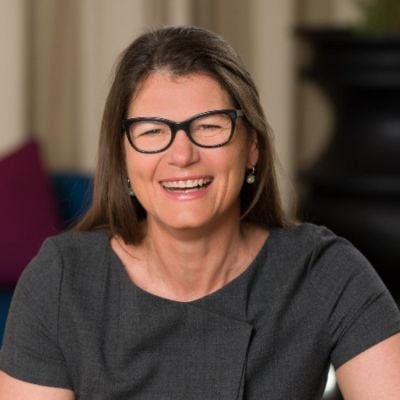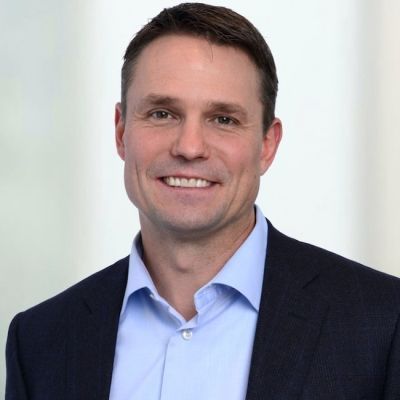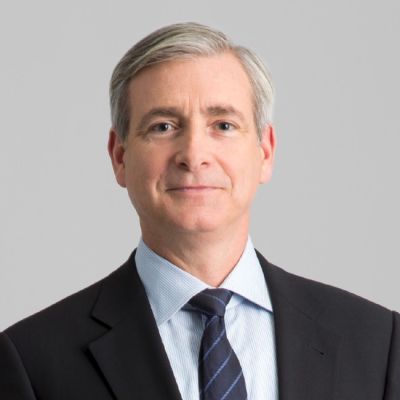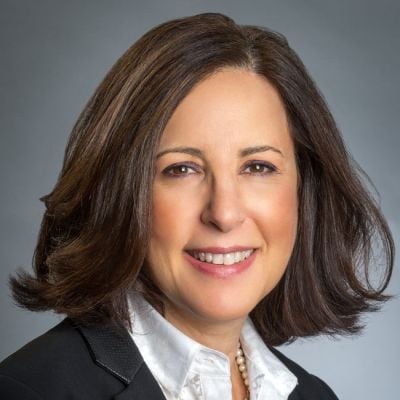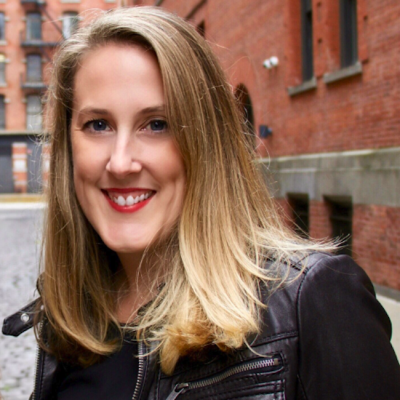
During World War II, our workforce became more inclusive and diverse out of necessity. With men leaving their homes to serve in the military and demands for war matériel increasing, new manufacturing techniques were adopted and jobs opened up to women. But the gains were only fleeting: Once the war was over, federal and civilian policies replaced women workers with men.
The pandemic has similarly forced us to adopt new behaviors, innovate ways of working, and challenge assumptions about who can contribute and how. As we emerge from COVID-19, let’s not allow the pull of the old ways of doing things rob us of the tremendous potential to evolve. Instead, let’s ask ourselves how we can make the gains sustainable.
When intention and accountability come together, sustainable gains follow.
Overcome the Limits of Location
Early in the pandemic, we grappled with connecting to one another; like everyone else, we quickly adopted video conferencing. Removing the need for people to be co-located has turned out to be a game changer. What started as a response to an emergency turned out to be a catalyst for deeper connections, insight, and opportunity—creating a stronger shared understanding across workforces globally.
During the pandemic, we launched a virtual sponsorship program for underrepresented professionals. The virtual program broke down the barriers of distance, and allowed the formation of meaningful relationships across geographies. For example, a senior leader in Europe sponsored a colleague in New York, including her in meetings and deals she would not have been exposed to otherwise. With location no longer a limiting factor, sponsors have more opportunities to develop and advocate for professionals from diverse backgrounds. They can sponsor rising leaders from any location and offer them enhanced growth opportunities.
Embed New Ways to Attract and Retain Diverse Talent
Knowing that diverse teams perform better, we set a goal of having 30 percent diverse directors on the boards of our controlled companies by 2023. To sustain and expand these efforts, we also established two lines of credit, totaling more than $6 billion, that tie our cost of financing to progress on board diversity. During the pandemic, we leveraged virtual technology to help our deal teams meet a larger and more diverse network of potential board members to great effect: In 2020, 56 percent of the new directors added to our goal companies were diverse.
As another example, we were forced to run our investment committee meetings online. The virtual meeting format allowed more participants than the typical in-person format; it also diminished visible markers of hierarchy. These crucial characteristics promoted richer, more candid discussions, from a broader set of perspectives. More generally, we learned that successful virtual meetings required us to be intentionally thoughtful and inclusive. That same intentionality opens doors for a more diverse range of perspectives, which is why, at Carlyle, we are equipping our people with the guidance to run effective meetings, keeping intentional inclusivity in mind.
Intentionality + Accountability = Sustainable Gains
Enduring the pandemic, working remotely, and living through wrenching waves of social injustice together have given us a more multidimensional view of one another. We've come to know colleagues better, with greater empathy for the varied factors we are juggling. This experience has given us all a greater appreciation of the need to be intentionally inclusive.
As we proceed, let’s continue to act on that insight. Companies can show commitment to their priorities by recognizing these actions and motivating the workforce to continue to be better. At Carlyle, we launched the DEI Incentive Award, granting over $2 million to more than 50 colleagues who demonstrated excellence in inclusion. We are holding the entire firm accountable, starting with our CEO, and making inclusive leadership and management core factors in advancement and compensation. These are some of the changes we’re making to institutionalize best practices we’ve identified during the pandemic.
When intention and accountability come together, sustainable gains follow. During WW2, the female labor force grew by 50 percent. After the war, entrenched mindsets were unable to cement those gains, and most women were let go from their jobs. We must collectively commit to writing a different story, and use our respective spheres of influence to drive and sustain transformative change.




